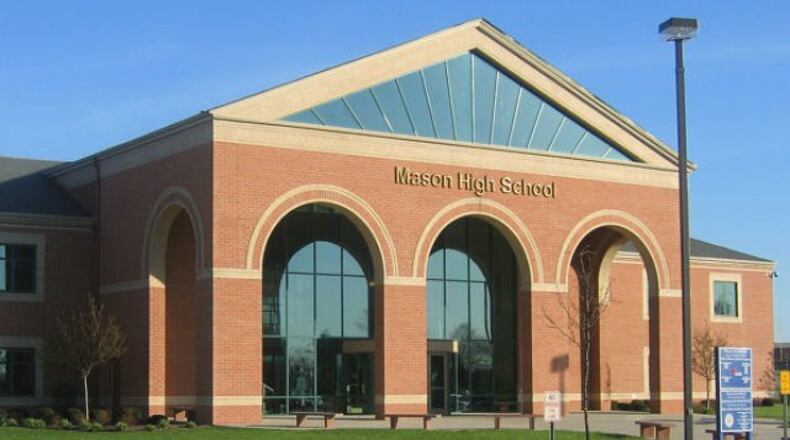If approved by voters, residents would see the proposed, two-stage increase first raise school taxes in January 2021 by 4.71 mills then another 5.25 mills in 2022, according to the school board’s resolution.
But Mason school officials said due to prior taxes expiring as the mortgage on Mason High School is paid off, school taxes would only have a total increase by 4.71 mills – not 9.96-mills - above the current millage level.
“The upcoming (high school mortgage) debt reduction created a unique opportunity for our residents to protect and maintain the district’s existing programs while paying a fraction of what it would have cost without the debt reduction,” said Mason Schools Treasurer Shaun Bevan.
If the phased-in, two-stage school tax is approved by voters on March 17, the owner of a $100,000 home would see a $165 annual increase in school taxes beginning in January 2021.
It’s the first new school operating tax proposed by the 10,500-student district in 15 years.
If approved, the levy would generate $20 million when fully-phased in for Mason, which has an annual operating budget of $120 million.
Mason officials said the district currently faces a $13 million deficit in 2022.
Officials said if voters reject the new school tax it would result in $6 million in budget cuts prior to the start of the 2020-21 school year, including the elimination of dozens of teacher and other school staffers.
Matt Steele, president of the Mason school board, said “we have very carefully controlled costs, listened to taxpayers about what is most important to them, and gone to great lengths to ensure that this levy would have as little financial impact on our community as possible.”
“Careful planning and difficult choices have allowed us to maintain excellence without new (operating) levy dollars since 2005. But we have reached the point where we cannot maintain the quality that our community and families expect from our high-performing schools without making this very important request to our voters,” said Steele.
For years – as measured by the Ohio Department of Education’s annual report card – Mason Schools have been among the top academic performing districts in both the southwest Ohio region and statewide.
Failure at the ballot could also mean budget reductions in “(school) safety, student support services, and mental wellness personnel & program investments,” increased class sizes, elimination of some advance placement, honors and career course offerings, according to a statement released by school officials.
Other changes may include raising sports and other extracurricular activity participation fees and reductions in transportation services.
About the Author
